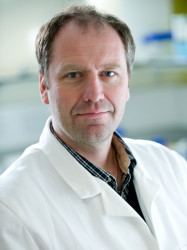BibTex format
@article{Donini:2021:10.1042/BST20200840,
author = {Donini, R and Haslam, S and Kontoravdi, K},
doi = {10.1042/BST20200840},
journal = {Biochemical Society Transactions},
pages = {915--931},
title = {Glycoengineering Chinese hamster ovary cells: a short history},
url = {http://dx.doi.org/10.1042/BST20200840},
volume = {49},
year = {2021}
}

